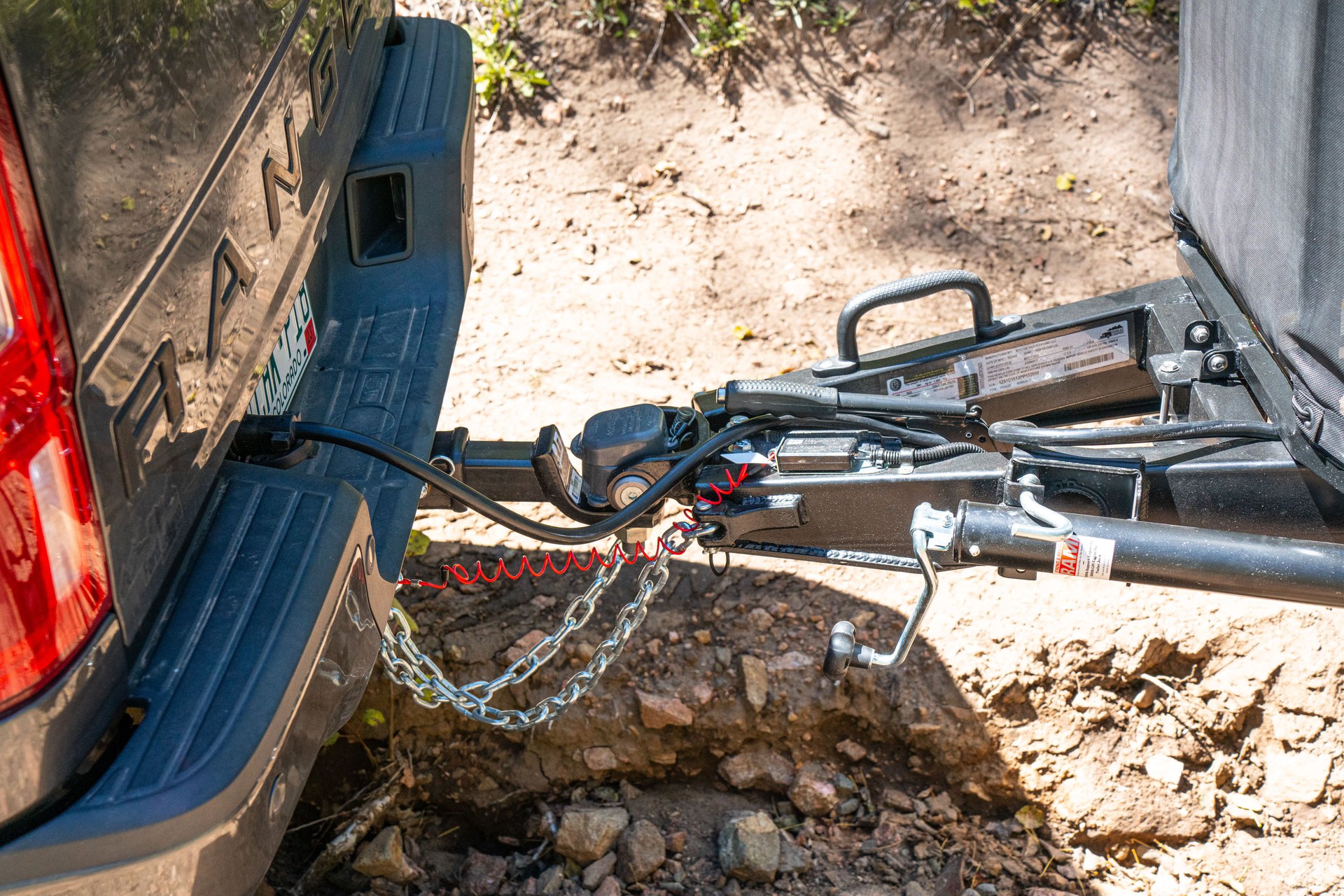
CAMPER READINESS CHECKLIST FOR THE BOREAS XT
Whether you’re leaving home or leaving the campsite it’s always good to have a checklist to make sure everything is safe and in order before you hit the road. We’ve created a camper readiness checklist specific to the Boreas XT so that you know you’re good to go before you depart. The short version of the checklist can be downloaded and printed to keep in your camper or tow vehicle, but we thought it would be helpful to explain the importance each step in detail below.
Shut Maxxair fan lid: While it may be tempting to leave the fan open to air out the camper and the way to or from your destination, the fan lid was not designed to handle highway speeds while it is open. Essentially it will bounce around until it either no longer works or it comes off altogether. Keeping the fan shroud shut when travelling will prevent any damage to the fan.
Turn water pump off: While the water system is tightly sealed on the XT, rough roads can always shake something loose or can even turn your faucet on without your knowledge. To prevent having a camper full of water when you arrive at your destination it is best practice to leave the water pump in the off position while travelling.
Close and latch all cabin and kitchen cabinet doors: While this might go without saying, it’s always best to double check the cabinet latches to make sure they are secured all the way. We’ve found out the hard way that loose cabinet doors don’t do well for the interior on rough roads.
Close and lock all doors - toolbox, cabin, back galley, shower box: While making sure all doors are shut and secured, you might as well make sure everything is locked as well. It just adds that extra protection that nothing will come undonewhile on the trail or the highway.
Turn propane tank(s) off: The propane serves no purpose while the camper is moving so for safety you might as well turn it off. Showing up at camp with an empty tank is a lot less fun as well. To ensure your propane survives the trip, turn the tank valve off after each use, especially while in tow.
Pull stabilizers up: We do get at least one phone call every season from someone who needs a new stabilizer jack since they drove away with them down. Do yourself a favor and double check that your jacks are up and they are tight. If they are slightly loose, they have been known to drop down several inches on bumpy roads.
Cross chains after hitching the camper to tow vehicle: Crossing the chains under the tongue of the trailer has been towing safety 101 long before Boreas Campers, but for good reason. Crossing the trailer chains aids in turning the trailer by reducing the probability of stress. It also acts as a cradle in the event of separation from the tow vehicle.
Pull tongue wheel jack up and secure: Again, we get calls for a couple front jack replacements each year from not remembering to pull it up before leaving. Make sure once the jack is up that the retention pin is fully seated, and that the jack won’t come undone down the road.
Disengage e-brake: The e-brake tension is set from the factory so that even the first click from the handle engages the brakes. To prevent unnecessary brake wear, make sure the brake is FULLY disengaged.
Attach emergency break-away cable: The breakaway cable is designed to engage the trailer brakes in the event the trailer becomes disconnected from the tow vehicle. While the likelihood of this happening is very low, it’s always best to connect the cable both for the safety of your trailer and others on the roadway.
Plug in 7-pin to tow vehicle: While this may seem like a no brainer, we do get calls for 7 pin plug replacements from those that plugged in their trailer plug only to have it come out somewhere down the road. Once it drags the road surface for a few miles unfortunately it’s pretty much toast. Most vehicles have a spring-loaded securing mechanism to make sure the 7 pin plug doesn’t come undone. Make sure that the securing mechanism is in working order before departure to ensure this doesn’t happen to you.
Test all lights: brakes, turn signals, running, reverse: Making sure all lights are functioning properly will help ensure your safety and other drivers around you. If light issues do arise, at least as a driver you are aware of them and you can tow your camper somewhere to address the issue properly. It’s best practice to check your campers’ lights before every departure and randomly at stops for food or gas on those high mileage trips.
There are plenty of other checklist items to consider before heading out on the road, but this list should be enough to make sure your camper is as ready as possible. As stated above, we encourage you to download this checklist and either keep a copy in the camper or your tow vehicle so you don’t miss any steps before you hit the road. Hopefully this checklist will save you a headache or two and keep your sights on the road and the adventure ahead!